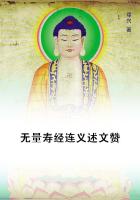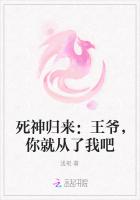Owen's diagnosis of the social disease explains Southey's partiality.Like Southey,he traced the evil to the development of the manufacturing system.That system involved,as he held,what later Socialists have called the 'exploitation'of the labouring classes by the capitalists.With singularly crude notions of political economy,Owen assumed that the 'dead machinery'was in competition with the 'living machinery.'He made startling calculations as to the amount of human labour represented by steam-engines;and took for granted that the steam-engine displaced an equal number of workmen.His remedy for poverty was to set up a number of communities,which should maintain themselves by cultivating the soil with the spade,and in which every man should labour for all.Thus New Lanarks were to be spread over the country,with the difference that the employer was to be omitted.Owen,in short,became properly a Socialist,having been simply a paternal philanthropist.For a time Owen met with considerable support.A great meeting was held in London in 1817,and a committee was started two years afterwards,of which Ricardo was a member.Ricardo,indeed,took pains to let it be known that he did not believe in the efficacy of Owen's plans.Meanwhile Owen was breaking off his connection with New Lanark,and becoming the apostle of a new social creed.His missionary voyages took him to Ireland,to the United States and Mexico,and attempts were made to establish communities in Scotland and in the State of Illinois.
Owen and his followers became natural antagonists of the Utilitarians.He agreed with Southey in tracing distress to the development of the great manufacturing system,though he went much further.The principles essentially involved in the whole industrial system were,according to him,pernicious.He held the essential doctrine of his modern successors that property is theft.Between such a man and the men who took the Wealth of Nations for their gospel,and Ricardo as its authorised commentator,there was an impassable gulf.On the other hand,Owen was equally far from the Tory view of religious principles.
Southey's remark that he could only succeed by allying himself with some religious fanaticism was just to the point.
Owen was a man of very few ideas,though he held such as he had with extraordinary tenacity,and enforced them by the effective if illogical method of incessant repetition.Among them was the idea which,as he declares,had occurred to him before he was ten years old that there was something radically wrong in all religions,Whether this opinion had come to him from the diffused rationalism of his time,or was congenial to the practical and prosaic temperament which was disquieted by the waste of energy over futile sectarian squabbles,or was suggested by his early study of Seneca --the only author of whom he speaks as having impressed him in early years --it became a fixed conviction.
He had been an early supporter of Lancaster and 'unsectarian'education.
When his great meeting was to be held in 1817it occurred to him that he might as well announce his views.He accordingly informed his hearers that the religions of the world were the great obstacles to progress.He expected,as he assures us,that this candid avowal would cause him to be torn in pieces.'It provoked on the contrary general applause,and Owen congratulated himself rather hastily on having struck the deathblow of superstition.
Owen's position,at any rate,was a significant symptom.It showed that the Socialist movement sprang from motives outside the sphere of the churches.Owen's personal simplicity and calmness seems to have saved him from any bitter animosity.He simply set aside Christianity as not to the purpose,and went on calmly asserting and re-asserting his views to Catholics and Protestants,Whigs,Radicals,and Tories,they agreed in considering him to be a bore,but were bored rather than irritated,Owen himself,like later Socialists,professed indifference to the political warfare of Whigs and Tories,When,at the height of the Reform movement,he published a piper called the Crisis,the title referred not to the struggle in which all the upper classes were absorbed,but to the industrial revolution which he hoped to bring about,He would have been equally ready to accept help from Whig,Tory,or Radical;but his position was one equally distasteful to all,the Tory could not ally himself with the man who thought all religions nonsense;nor any of the regular parties with the man who condemned the whole industrial system and was opposed to all the cherished prejudices of the respectable middle classes.















